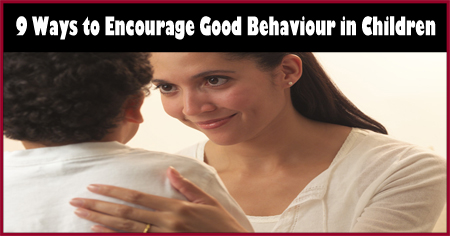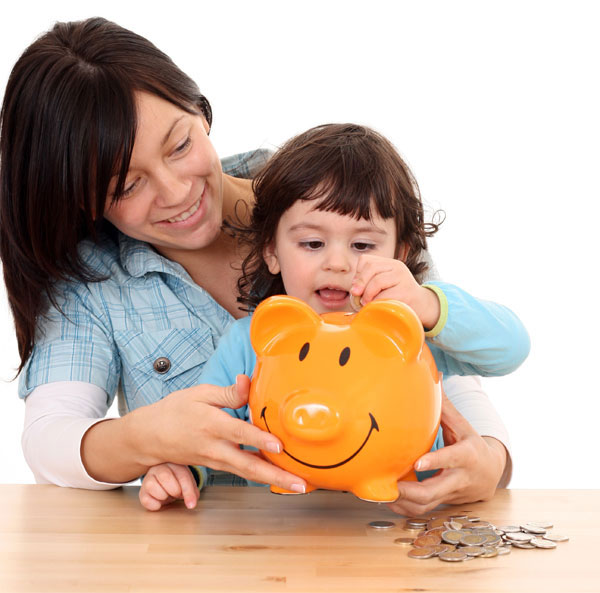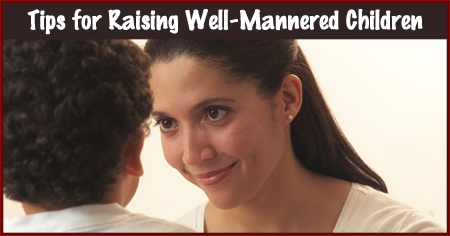 It is not good to punish children severely for misbehaving. Following some liberal ways can work wonders while inculcating good behaviour in them. Read on to learn more about the 9 ways for encouraging good behaviour in children.
It is not good to punish children severely for misbehaving. Following some liberal ways can work wonders while inculcating good behaviour in them. Read on to learn more about the 9 ways for encouraging good behaviour in children.Parenting is one of the most complicated jobs, yet which is the most rewarding. Being so, extreme care and caution should be taken that the child learns to be disciplined so that he or she grows to be a conscientious human being. Although,
spanking and punishing are popular ways of
disciplining kids, they are not the best ways to teach them good behaviour or self-control or to train them for their life ahead.
It is seen that parents often hit or punish their children as a vent to their own frustrations when they misbehave. To overcome this, parents first need to control their anger by walking away and taking deep breaths before handling the children. Once you calm down, you can work on these options as follows in order to
encourage good behaviour in them –
1. Encouragement and Rewards
Encourage your children to behave well by offering rewards. Praise and encourage your children when you see them doing something right. Acknowledging that they are good children will make them want to repeat good behaviour to gain your approval. Reminding them repeatedly that they are good children will help to control the bad behaviour easily instead of
punishments.
2. Take Away Privileges
If your child is too absorbed in your tablet, take away all electronic devices or switch off the television for a few hours. Moreover, explain to your child why he or she is being “punished” in this way to make him or her learn.
3. Do Not Make a Big Fuss, Sometimes
Very often, you could just ignore some
bad behaviour such as whining which might well be a call for general attention.
4. Ask Them to Repair Broken Things
If your child refuses to clean up their room, try helping them with some of the task. If they have broken a toy, help them repair it. Help them understand that they have some rules to follow in the house or they might have to miss out on something they enjoy.
5. Explain the Consequences of Actions
If he or she has been rude to his or her friend, explain how her behaviour has hurt the friend. Make your child know that he or she should think before hitting or being rude, and encourage him or her to apologise.
6. Hear Their Side of the Story as Well
Parents do not often consider the feelings of their children before blaming them. In these cases, the child might lose trust in his or her parents; therefore, it is essential, she should be given a chance to explain why she had hit her friend.
7. Adjusting Your Expectations
Are you expecting too much of your child? Do you hit him or her just because he or she has not topped the class? These incidents would make the child scared and detached from you, and might end up being a bully to others just as an outlet to their own anger.
8. Letting Go of Past Mistakes
Bringing up past mistakes could seriously damage a child’s trust in you. If the incident had been something worth ignoring, it is better to let it go for good. Instead, take it up as a challenge to encourage good behaviour and help your child to become a better person.
9. Express Disapproval, But Do Not Insult Your Child
Explain to your child what went wrong in his or her behaviour, but do not make attacks on his or her character. Discuss on solutions on how to behave better, and the consequences. Moreover, do keep her age and personality in mind before discussion.
A few simple adjustments from the parents’ side are all that it takes to form a deep and loving relationship with their children. One could try child development and parenting classes to learn how their child’s mind works, which would help you to develop healthier bonds with them and encourage good behaviour.
How to encourage good behaviour in children? Is it necessary to punish children when they misbehave? What are the ways to control misbehaviour of children? Discuss here.










 It is not good to punish children severely for misbehaving. Following some liberal ways can work wonders while inculcating good behaviour in them. Read on to learn more about the 9 ways for encouraging good behaviour in children.Parenting is one of the most complicated jobs, yet which is the most rewarding. Being so, extreme care and caution should be taken that the child learns to be disciplined so that he or she grows to be a conscientious human being. Although,
It is not good to punish children severely for misbehaving. Following some liberal ways can work wonders while inculcating good behaviour in them. Read on to learn more about the 9 ways for encouraging good behaviour in children.Parenting is one of the most complicated jobs, yet which is the most rewarding. Being so, extreme care and caution should be taken that the child learns to be disciplined so that he or she grows to be a conscientious human being. Although, 



















